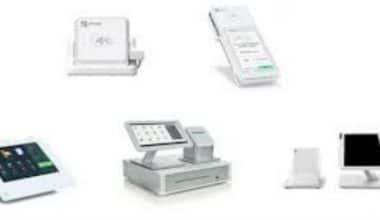The world is awash in ideas for e-commerce retail businesses. But which of them ought to be pursued and which not? It’s frequently tough to tell. With approximately 1.92 billion individuals purchasing online, an online store has a significant number of potential clients. It is, therefore, a suitable venture for those looking for a dependable source of income. In this post, you will learn about the bank that offers e-commerce business, the ideas to start, and the accounting terms linking to e-commerce businesses.
Small Ecommerce Business
The word used to describe the purchasing and selling of products and services through the Internet is electronic commerce, sometimes known as eCommerce. As more small businesses opened their online storefronts during the past 10 years, the number of eCommerce websites has increased. Many analysts today regard web commerce as the most potent technical force that has ever fully transformed how small businesses work due to how deeply it has permeated business operations.
So what is the motivation behind this latest trend? Which alluring benefits of eCommerce have prompted small business owners to open online storefronts? Let’s look into it –
Small E-commerce Business Ideas
It has never been easier to start an online store in the modern era. You only need a domain name, website hosting, and an e-commerce website builder. Even if you have no prior design or coding experience, you can set one up and start using it right away. Below is the list of E-commerce business ideas you can go for:
#1. Personal care and health products
The health and beauty sectors are among the biggest in the world. With all these choices available today, operating an online business is still highly successful. For young people who thrive in an e-commerce business, this is one of the ideas that are especially useful. As long as you are able to communicate the importance of the things you are selling in people’s life, your chances of success are strong.
#2. Purchasing and selling used items
People don’t mind using second-hand things as long as they are of high quality and in good condition. Just start collecting these secondhand items, such as apparel, jewelry, and furniture, and put them on your e-commerce website. You must also make sure that the prices you charge for them are reasonable. You may start an e-commerce business by determining how well these ideas perform in your nearby neighborhood before extending your reach.
#3. Online Education Courses
There are a lot of successful business ideas and academics with a lot of knowledge to share all across the world. You may also create an online store where these people can create and sell courses to customers. It is in turn one of the best ideas in the e-commerce business. There is a significant demand despite the fact that there are numerous online platforms that provide courses for sale. There are too many different industries, fields of study, and professions for one platform to support. You have the chance to offer individuals special teaching resources.
#4. Selling eBooks
The days of needing a publisher to start selling books are long gone. As a result, To start selling eBooks is one of the top e-commerce business ideas in the year 2023. You have the option of using a ghostwriter or writing the books yourself. As long as you can publish something worthwhile on any popular educational subject, you will have a chance to sell a significant number of copies.
#5. Content Writing
This is one of the best ideas in the e-commerce business. The value of content writing is another beneficial idea that keeps rising over time. If you are good at producing content, you may start an online business and charge customers for your labor. The content might even be written in advance and sold. Naturally, you might want to start by becoming more approachable and reasonable. However, if your business is successful, you can increase your prices and set your own working hours.
#6. Video Doorbells
The popularity of video doorbells has grown recently to be among the best ideas in the e-commerce business. And they are now a popular business concept. It makes it reasonable that people would want to be able to see who is at their door on a screen, given the popularity of video calls. It is a fantastic security tool and will work wonders if it has excellent night vision.
Read Also: MARKETING STRATEGIES FOR ECOMMERCE BUSINESS
Which Ecommerce Type Is the Most Successful?
B2C: Business to Consumer: This is the most common e-commerce business strategy, and it often closes sales the quickest.
How Do I Start My Own Business Model?
Make sure your company concept is solid by following these easy steps.
- Decide who your target market is.
- Create business procedures.
- Keep track of important company resources.
- Create a compelling value offer.
- Find important business partners.
- Develop a demand generation plan.
- Allow space for invention.
How Can I Start My Own Business With No Money?
How to launch a business without any funding
- Locate a free business concept.
- Plan your business.
- Decide on a company name.
- start a website.
- Preorders are a way to test ideas.
- To increase financing sources
Ideas on How Do You Start a Business With No Idea?
How to Launch a Small Business If You Don’t Know Where to Start
- Start with a cause that interests you.
- Market research is important.
- Set financial objectives.
- Make the content distributable.
- Consider marketing…
- Create a Following.
- Launch a Product You Can Sell.
- begin with the WHY.
How to Start Small E-commerce Business
There are many differences between how to start an e-commerce business and a traditional brick-and-mortar one, but there are also many similarities. We’ll go into more depth below, but many of the planning and legal steps you’ll need to follow will be identical to those of any other firm. But when the time comes to begin your company, you’ll see how different opening an internet store may be. Below are the steps to take on how to start an e-commerce business:
#1. Research the e-commerce sector and decide on your area of expertise.
Researching the topic is the first step in learning how to start an online store. Just as you would if you were opening a restaurant and considering various locations, menu selections, and themes, you should also conduct research on the e-commerce market you’re interested in and make some decisions in relation to your particular business.
#2. Choose a business name and a legal structure.
Once your idea is complete, the following step is to choose a name for your online store. Like any other company, you should choose a name that stands out while yet being very clear about what your organization does. You should probably check the websites of the U.S. Patent and Trademark Office and your local secretary of state to make sure that the business name you select hasn’t already been registered by another company.
#3. Get an EIN
Applying for an employer identification number (EIN) for your online store is the next step. Even while not all business entities must have an EIN, being able to distinguish between your personal and business funds may help. The IRS also offers free EIN applications via phone, fax, mail, and the internet. If you’re researching how to start an e-commerce business, you should apply for this business tax ID online because you’ll receive your number instantly.
#4. Obtain business licenses and permits.
After getting your EIN, you should now apply for any business licenses or permissions necessary to run legally in your city and state. As we mentioned above, if you’ve already start your e-commerce business as a sole proprietorship or general partnership, you don’t technically need to register it with the state unless you’re doing so in order to lawfully operate under a certain business name. In contrast, if your company falls under another category of business entity, you must register it with your state and obtain a general operating license. Depending on where your business is located, you might additionally need to get a regional operating license.
#5. Build your website on an e-commerce platform.
The paperwork required to register and formally begin your e-commerce business has now been completed. Most of what we’ve done so far is resembles starting a typical brick-and-mortar firm. Instead of hunting for a location and preparing to open your physical store, you will now start creating your website and e-commerce business.
Also Read: HOW TO START PAYROLL FOR SMALL BUSINESS: 2023 Best Easy Guide
Best Bank for Small E-commerce Business
Make sure the bank you choose can accommodate the growth of your e-commerce business and provide the tools required for success. It will also make e-commerce bookkeeping much easier because you’ll know where your money is and how it’s growing. A guide to the finest bank accounts and banks for e-Commerce business has been posted here to help you make an informed choice.
#1. Chase Business Complete Checking
It should come as no surprise that one of the top ten international banks also offers some of the best services for online businesses. Chase Business Complete is the best all-in-one account for a small-to-medium-sized e-commerce business bank(formerly known as Chase Total Business).
They offer a ton of rewards for creating an account, and they also have a mobile app with a ton of features. A sizable network of ATMs, debit cards, ACH transfers, and mobile deposits are just a few of the services that are considered typical. That way, you can accept online payments at all times.
#2. Novo
Novo was developed specifically with mobile banking for small business owners in mind, despite the fact that it is a much more current business banking solution. There won’t be any technical issues as a result of this bank, and it can be added to the majority of e-commerce businesses.
The best aspect about Novo is that every function is totally free. Along with debit card purchases, this also includes a Mastercard with limitless transactions, transaction notifications, and ATM reimbursements. One of the major financial service providers for online enterprises, it is recognized.
Novo comes with credits for Google Cloud and free processing through Stripe. You should definitely have a rising account with the bank if you routinely come up with profitable e-commerce business concepts. Novo is, in our opinion, the best choice whether you run your own website or conduct online business.
#3. Axos Small Business Banking
The nation’s first e-commerce business bank, Axos, is perfectly equipped to aid online merchants. There are no physical locations, but you can use any American ATM to get your money and have any costs paid. There are no fees or minimum balance requirements when opening an account. New business owners can get $100 even if they open an account.
Axos has limitations, such as 200 free transactions per month and an additional $0.30 per transaction cost. Their customer service hours are not always convenient, and they do not accept credit cards.
#4. NorthOne
Similar to Novo, NorthOne is a cutting-edge bank for freelancers and small e-commerce business. In addition to Quickbooks, Square, PayPal, and many more products, they offer FDIC-insured business banking accounts with API connectivity. The setup process only takes three minutes, and for a flat fee of $10, you get unlimited transactions with no extra fees.
The best aspect of NorthOne is quick mobile banking. Because you have access to your account and reports anytime you need them, this might truly make a difference for small businesses and entrepreneurs. You can order more debit cards for your team through the app! Make sure you understand the entrepreneur’s job description in order to assess whether you fit this description.
#5. TIAA Small Business Checking
The second-largest bank on our list is TIAA Bank. Their Small Business Checking is a great option for small eCommerce enterprises searching for a long-term banking alternative. It offers no monthly fees, rapid mobile check deposits, and reimbursement for ATM costs.
The negative of this account is that it costs $1,500 to open, which can be challenging for a startup. Despite this, it offers an annual percentage yield (APY) of 1.21% in the first year, which is more than the APY of many other high-return savings accounts. If you have cash on hand and want to increase it rapidly, opening a checking and savings account is a wise decision.
Accounting for Small E-commerce Business
E-commerce accounting entails monitoring, managing, and arranging all of the financial data and transactions crucial to the operation of an e-commerce organization. You might also think of it as a branch of business accounting that was developed expressly to meet the demands of an e-commerce supplier.
The practice of recording transactions while classifying each one as a cost or an income is known as accounting. Pretty elementary, no? However, it could be easy to become lost in the language if you are new to the field of accounting.
What Must E-commerce Business Owners Keep an Eye On?
Keeping track of all transactions in an e-commerce business, inventory, and financial data is accounting for firms. Measures including cash flow and gross profit are included, as are balance sheets and profit and loss (P&L) statements.
#1. Cash flow
Cash flow refers to the flow of funds into (and out of) your company. By employing cash flow management, you can fulfill all of your responsibilities without incurring inadvertent debt.
#2. Gross earnings
One of the most crucial metrics for managing your business is gross profit. Total revenue less cost of goods sold is used to compute it. Gross profit is expressed mathematically as revenue minus the cost of goods sold.
#3. Profit margins.
Gross margins are calculated using the same data and are then reported as a percentage of total revenue. The formula gross margins = (revenue – cost of goods sold) / revenue is used to calculate gross margins. As an example, if you sell goods for $10,000 that cost you $4,000 to make, your company’s gross profit is $6,000 and your gross margins are 60%.
#4. The balance sheets.
Your balance sheet consists of assets (such as cash, accounts receivable, and inventory), liabilities (such as accounts payable, wages, and income taxes), and total shareholder ownership.
#5. Losses and gains.
With the help of profit and loss statements, you may fully comprehend how profitable your business has been over a given time period. Total revenue is calculated as less than all operating expenses, including COGS, marketing expenses, payroll expenses, and overhead costs. If this number increased during the allotted time frame, you were profitable. You’ve lost money if it’s bad.
What Are the 4 Types of E-commerce Businesses?
- Products.
- A marketplace.
- Subscription
- Freemium
How Much Does a Small Ecommerce Business Make?
According to a rough calculation, the average US eCommerce site earns over $150,000 per month in revenue after three months, and by the end of a year, the company earns close to $330,000 per month.
Is Ecommerce Easy to Start?
Getting started with an online store can seem intimidating. It’s not necessary to be. There are many factors to take into account, but you also have this.
How Do I Start an Ecommerce Business for Beginners?
How to launch an online store:
- Find your specialization by doing research on the e-commerce market.
- Pick a legal structure and a business name.
- Obtain an EIN.
- Obtain licenses and permits for your company.
- Create your website using an e-commerce platform.
What Are the 4 Types of Business Models
- Business-to-business (B2B) models:
- Business-to-Consumer (B2C) Models:
- Models based on subscriptions
Final Thoughts
Today, a wide variety of e-commerce business options are available. While some projects are worthwhile, others are not. A competent businessperson will research potential candidates before selecting any. Pay attention to some of these amazing e-commerce podcasts for inspiring stories and advice.
As you can see, you can sell a huge range of goods (almost anything) online, from children’s toys and games to health and beauty products. Being able to launch an online business and do so while making a large profit is one of the biggest joys and benefits of living in the internet age.
FAQ
What is E-Commerce Small business?
Electronic commerce, also referred to as eCommerce, is the term used to describe the buying and selling of goods and services over the Internet.
What are the 3 types of e-commerce?
E-commerce is divided into three primary categories: business-to-business (represented by websites like Shopify), business-to-consumer (represented by websites like Amazon), and consumer-to-consumer (websites such as eBay).
Is Amazon an e-commerce?
The American multinational technology corporation Amazon.com, Inc. specializes in online shopping, cloud computing, digital streaming, and artificial intelligence.
Related Article
- DO I NEED A BUSINESS LICENSE? :The Need to Get a Business License
- MARKETING STRATEGIES FOR ECOMMERCE BUSINESS
- HOW TO START PAYROLL FOR SMALL BUSINESS: 2023 Best Easy Guide
- Best eCommerce Platform: Top 15 eCommerce platform UK






